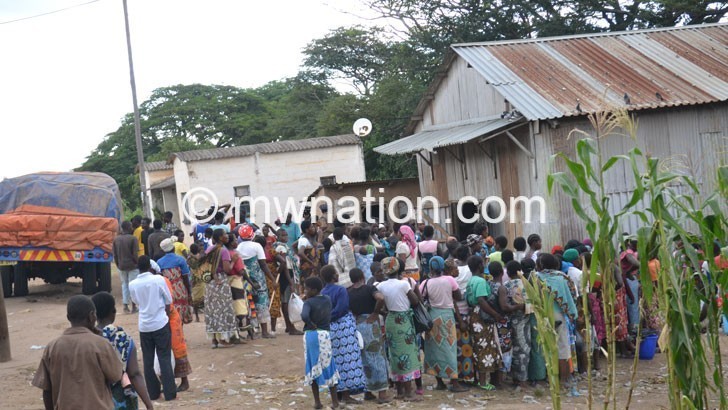Admarc has been dysfunctional—Jumbe
Agricultural Development and Marketing Corporation (Admarc) board chairperson Felix Jumbe says the State produce trader has over the years been dysfunctional, resulting in most farmers being at the mercy of intermediate buyers.
He said this in an interview yesterday following the announcement by Treasury to resuscitate the commercial division of Admarc to participate in the purchasing, processing and exporting of agricultural produce and compete with private sector traders.

Minister of Finance, Economic Planning and Development Joseph Mwanamvekha announced this during the presentation of 2019/20 National Budget two weeks ago.
In view of this, Treasury has allocated K1 billion for cotton production and another K1.8 billion for legume production to increase production of cash crops that the commercial arm of Admarc will buy from farmers for value addition and exports.
Jumbe said if Admarc will operate at a high-scale commercial rate, it will be able to deliver high-value products for both local and international markets.
He said: “The resuscitation of Admarc commercial arm will trigger efficient and sustainable production because farmers will be assured of ready markets within their reach.
“The first thing that we are doing as Admarc board is the development of the commercial bankable plan that would spell out in detail what needs to be done. The plan will be able to attract both local and international financial institutions such as the African Development Bank to come in to finance the investments, including capitalisation.”
Jumbe said there is need to capitalise the commercial aspect of Admarc through commercial planning and also engaging commercially oriented experts to deliver the commercialisation plan.
He said other traders requiring large volumes may also be able to use Admarc to get aggregated volumes of farm produce.
Jumbe explained that through the commercial arm of Admarc, it will also help to enforce the adaptation of minimum prices set by government, saying most traders dupe farmers by offering prices below the set minimum.
Lilongwe-based agriculture economist Derrick Kapolo, in an interview yesterday, said the development is good, adding that when there is a new entrant on the market, it brings competition which triggers efficiency in the value chains.
“The coming in of government through Admarc will be a game-changer. It is a step in the right direction towards commercialising agriculture.
“This brings the power of existing and reliable markets that motivate farmers to grow more with an understanding that there is ready market,” he said.
Kapolo also proposed the establishment of the Legume Council of Malawi outlined in the National Agriculture Policy to regulate production and marketing of legumes.
Currently, Admarc operates 700 markets and nine major depots nationwide. Out of the markets, 205 are classified as uneconomic.





